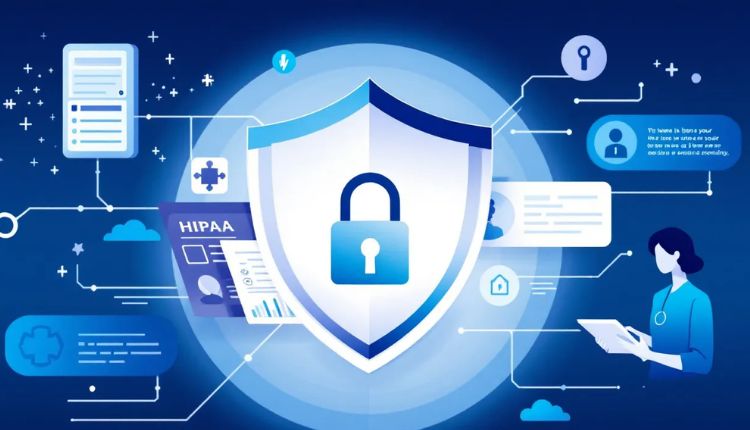As digital health platforms become more integrated into daily life, questions around data privacy have moved to the forefront. While HIPAA remains the baseline legal framework for protecting health information in the United States, it was written for a different era, one dominated by hospitals, not mobile apps. Now, developers, policymakers and innovators are facing a new challenge onhow to protect sensitive personal data in a world of wearable tech, real-time insights, and AI-driven feedback. Joe Kiani, Masimo and Willow Laboratories founder, is among the health tech leaders whorecognize a shift from passive compliance to intentional trust-building, placing privacy at the core of innovation rather than treating it as an afterthought.
The latest innovation from Willow Laboratories, Nutu™, a platform that delivers personalized health guidance through real-time metabolic and behavioral data, demonstrates what this next chapter of data governance can look like. Rather than treating privacy as a checkbox, his team views it as a design principle central to how the platform operates and how users experience it.
Table of Contents
HIPAA Isn’t Enough Anymore
When HIPAA was enacted in 1996, its focus was on protecting medical records within clinics, hospitals, and insurance systems. But today’s health data is generated everywhere, from fitness apps and sleep trackers to nutrition platforms and AI-powered virtual coaches.Most of these tools are not considered “covered entities” under HIPAA. That means they can legally collect, store, and share health-related data without the same level of oversight applied to doctors and hospitals.
Taking a User-First Approach to Privacy
Digital health companies now face a choice between simply following the letter of the law and leading with values. It chooses the latter. From day one, Nutu was built to give users full transparency into what data is collected, how it’s used, and where it’s stored.The platform never sells user data and allows individuals to control the flow of information shared with the app. Even anonymized data is handled with caution, and privacy protections are revisited regularly as technologies develop.
Joe Kiani, Masimo, founder, says, “Our goal with Nutu is to put the power of health back into people’s hands by offering real-time, science-backed insights that make change not just possible but achievable.” That philosophy extends to every aspect of data governance, where empowering users also means protecting their privacy at every step.
From Consent to Comprehension
It’s not enough to ask for user consent. Platforms must ensure that consent is meaningful. That means providing clear, jargon-free explanations of what users agree to before they sign up and throughout their journey.Terms of service and privacy policies are often written in legal language that most users never read. It takes a different route, offering plain-language privacy summaries, in-app reminders, and flexible controls that allow users to update their data-sharing preferences at any time.This kind of proactive communication supports a more informed, empowered user and that builds long-term trust.
Preparing for Global Standards
As the digital health industry grows, so does international scrutiny. Countries around the world are enacting new laws to regulate how personal health data is used, stored, and transferred.Laws like Europe’s General Data Protection Regulation (GDPR) and new U.S. state-level privacy acts go far beyond HIPAA in terms of user rights, data portability and accountability. Forward-thinking companies are already adapting to these frameworks by building systems to meet and exceed global data protection standards, ensuring readiness for both current laws and future ones.
Giving Users Control Over Their Data
True privacy governance puts users in charge. That includes letting people access their data, delete it, or move it to another platform without friction.With Nutu, users can export their data at any time and review the trends and insights the platform has generated.
They can also choose what kinds of notifications they receive, what features are activated, and what feedback is stored.These controls allow people to shape their experience and ensure the platform is serving their needs rather than mining their behavior.
Accountability Inside the Organization
External safeguards are important, but internal culture matters, too. Companies that prioritize data ethics make it part of every team’s responsibility, not just legal or engineering.Every product decision undergoes a privacy impact assessment. Teams are trained in ethical data use, and user feedback is taken seriously and reviewed by leadership.This kind of cross-functional accountability helps ensure that privacy is not siloed. It’s part of how the entire organization operates.
The Role of AI in Data Sensitivity
AI and personalization go hand in hand, but they also raise new ethical questions. The more granular the insight, the more sensitive the data is. Developers must decide what is appropriate to analyze and when not to.It takes a cautious approach.
Nutu doesn’t attempt to predict medical outcomes or assign diagnoses. It offers suggestions that users can evaluate and respond based on patterns, not prescriptions.This balance supports user autonomy while reducing risks. AI can enhance the health experience, but only if it respects the limits of what data should and shouldn’t do.
Privacy as a Market Advantage
Trust has become a competitive differentiator in digital health. Users are more likely to stick with platforms that respect their privacy, communicate clearly, and act ethically.Likewise, institutional partners, employers, insurers and care providers prefer to work with companies that show they can protect data at scale. Strong governance opens doors to new markets, new use cases, and long-term growth.Privacy isn’t a roadblock to innovation. It’s the foundation that makes innovation possible.
Redefining Digital Health Privacy
HIPAA provided a vital foundation, but the digital health era demands more than minimum compliance. It calls for a design rooted in transparency, user empowerment, and ethical foresight.Companies that embrace this shift are showing that privacy isn’t a barrier to progress, but a catalyst for trust, innovation, and long-term growth.
The next generation of digital health tools won’t just be smarter. They’ll be safer, and users can stay with them not out of necessity, but because they feel respected.
